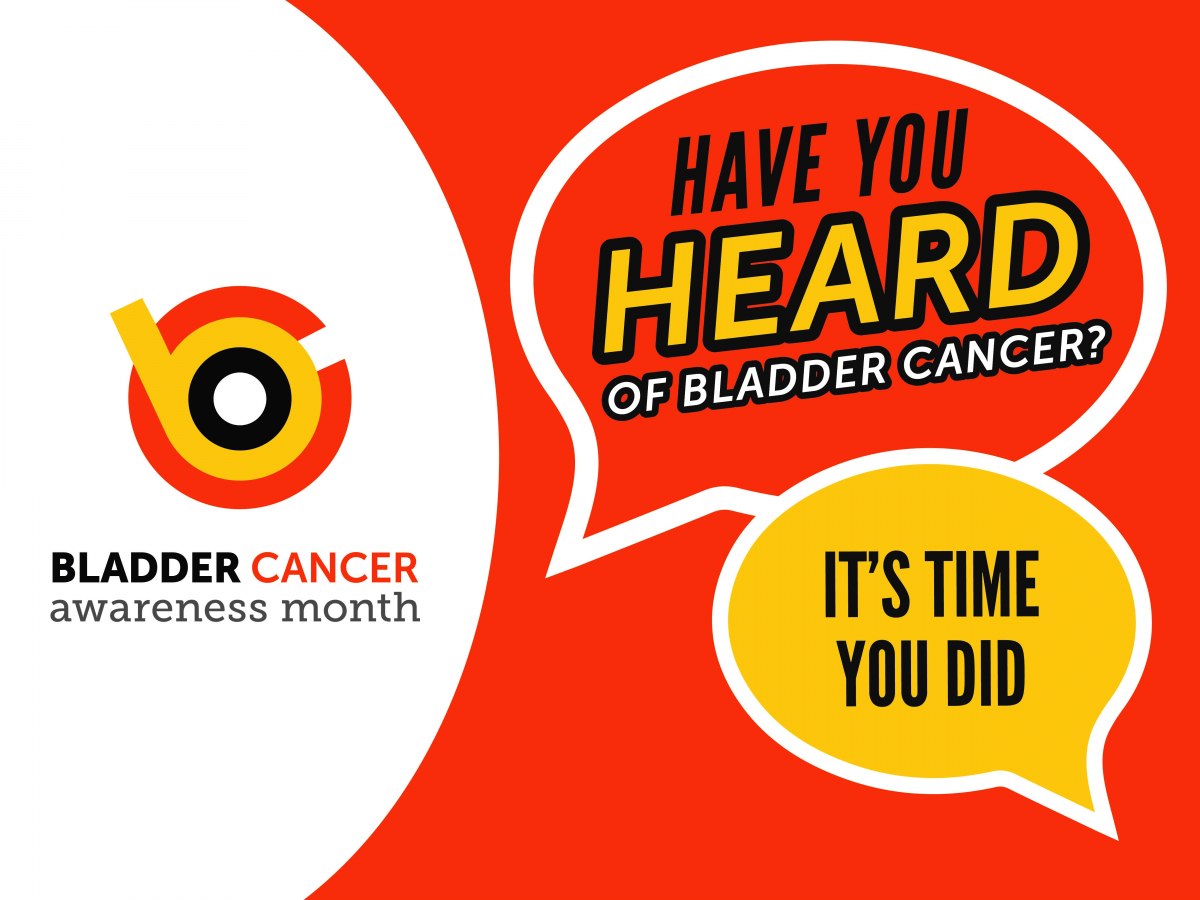
Bladder Cancer Awareness Campaign wants better information for General Practitioners to help reduce the number of late referrals to specialist clinicians.
In Europe, someone is diagnosed with bladder cancer every 4 minutes, and someone dies of the disease every 10 minutes. Bladder cancer is Europe’s 5th most common cancer with more than 150,000 new cases every year. Despite this toll, bladder cancer gets less than 1% of cancer research funding.
Marking the start of Bladder Cancer Awareness Month, the organisers describe it as ‘Europe’s forgotten cancer’ and warn that major changes are needed if the number of late diagnoses of the disease are to be reduced.
Whilst the average 5-year survival rate across Europe for all bladder cancer diagnoses is 69% for men and 66% for women, patients diagnosed late – at Stage 4 – have much worse long-term prognoses. Data from patients in England, a group considered to reflect the situation for Europe, show the dramatic decline in survival rates between patients diagnosed at different stages of the disease. Whilst male patients diagnosed with a stage 1 bladder cancer have a 95% survival after a year and women a lower rate at 91%, survival declines to 35% amongst men and only 27% in women whose diagnosis is not made until Stage 4.
The European Cancer Patient Coalition (ECPC), says the steep decline in survival rates is clear evidence that clinicians, especially General Practitioners and family doctors need to have the right information to make correct referrals when patients show the early indicative symptoms of bladder cancer. Without this information, opportunities to catch the disease early are being missed.
A big problem in making early diagnoses is that the most obvious symptoms are similar to non-life-threatening urinary conditions such as urinary tract infections. The commonest early indications for bladder cancer are blood in urine, an urgent or sudden need to urinate and repeated bladder infections.
Andrew Winterbottom, the founder of Fight Bladder Cancer and Treasurer of the ECPC is a bladder cancer patient himself. He said patients refer to it as the ‘forgotten cancer’ because it is not talked about often enough and too often goes unrecognised at its early stages. “People are often uncomfortable talking about urinary infections or problems they have urinating. It is understandable, but we have to change attitudes towards talking about symptoms if we are going to make progress. It is so important that we increase awareness about the common symptoms and the importance of patients getting an early referral to a specialist.”
According to Dr. Alison Birtle, a Clinical Oncologist at Lancashire Teaching Hospitals NHS Foundation Trust in the United Kingdom, late diagnosis also makes treatment more expensive: “The consequences of late diagnosis for health services is a higher cost for follow-up care, with bladder cancer patients requiring much more expensive physical procedures because there is no current alternative to cystoscopy.”
During Bladder Cancer Awareness Month (May 1-31) there will be a series of events across Europe including walks, gatherings and information days highlighting the need for greater awareness of bladder cancer. In a gesture of solidarity amongst patients throughout Europe, there will be a virtual ‘Cloud of Bubbles’ as people get together or blow bubbles on their own at 10 a.m. on Sunday May 19th. At that moment patients, families and friends will remember everyone affected by the ‘forgotten cancer’: those living with it and those who have died.
For more information contact Clémence Morinière:
Tel: +32 (0) 2 342 01 04


